What Nicole Kidman drinking milk at a bar says about Gen X women and desire
The Female Gaze is coming for your perfectly curated life
The most talked-about scene in Halina Reijn’s Babygirl isn’t the sex. It’s not even Harris Dickinson gyrating shirtless on my TikTok feed (though no complaints. These are End Times). It’s Nicole Kidman — power CEO, supposedly happy wife to sexy Antonio Banderas and mother of two — drinking a glass of milk at a bar while making intense eye contact with her 20-something intern.
It’s not sexy. It’s not scandalous. It’s something worse: it’s a woman choosing what she wants. Women’s desire — when it isn’t performing for someone else — makes people deeply uncomfortable.
*I’m sharing a few scene descriptions you may have seen in the trailer, for vibes, but I promise not to ruin any major plot points.
I watched Babygirl in a VIP cinema, kicking back in oversized Lazyboys with some of my Today’s Parent magazine editorial pals, sipping what I can only describe as basic bitch red wine. (Which, despite Dry January, I ordered to make up for the fact that I smuggled some Chipotle in. Rules were meant to be broken.)
The audience around me seemed unsettled, giggling uncomfortably, and not just because drinking dairy in 2025 is a recipe for farts. Judging by the reviews I’ve been reading on Rotten Tomatoes and in TikTok comments, the average moviegoer walked in expecting Fifty Shades of Grey: Power CEO Edition.
Instead, they got something far more unsettling — a woman giving herself permission to want something different than her perfectly curated life. A woman at risk of tearing it all down — with a smirk.
I watched it as a comedy (as Reijn intended), with the same horrified glee I reserve for friends making terrible dating app choices. She’s going to use this young man to ruin her entire life! I thought, reaching for more popcorn.
Finally, someone gets it. That giddy, reckless moment when you let the self-sabotage gremlin take the wheel in the name of self-discovery. (11/10 do not recommend as a life strategy, but damn, it’s relatable.) Watching her peel back the “shoulds”? Pure joy.
And that’s what rattles people the most. Not the sex. Not the power dynamics. It’s seeing a female lead through the eyes of a woman director. The female gaze: Raw, honest, unfiltered. It’s a woman daring to ask: What if I stopped being good? What if I stopped performing the life I was supposed to want?
The Exhaustion of Performing "Woman"
What director Halina Reijn understands — and what makes so many viewers uncomfortable — is how exhausting it is to perform "woman" all day long.
The perfect wife in tasteful neutrals. The #GirlBoss CEO in structured blazers, Botoxed to approachable perfection. The mother who has it all figured out, whose teens mostly like her, even if she forces them into perfect Christmas card photos.
Kidman’s character wears these roles like drag. And honey, by the end of the day, those shoes hurt.
(I know. My closet is still full of pre-pandemic heels I haven’t worn in years. I’m like Celine Dion on Carpool Karaoke, clutching my Fluevogs like, Not these! These are my power shoes!)
Growing up Armenian in Toronto in the late 1900s (couldn’t help myself), I learned early that being a “good girl” meant constant performance until you grew into your next role: “good woman.” At home, at school, and at church, I carried the weight of an entire diaspora’s expectations. Be presentable (read: look ultra-feminine but also innocent, AKA not slutty). Stay small (read: don’t take up too much space, don’t fill your hunger). Be polite. Be agreeable. Be easy.
Later, as I climbed from barely-keeping-it-together ADHD digital editor to executive in media boardrooms, it meant being competent but not threatening. Taking up just the right amount of space.
I could map this performance onto every role I’ve played — young production assistant in the film industry, hot girl at the club, parent council mom who worked at a parenting magazine…
Babygirl made me confront something I already knew but rarely say out loud: Women don’t stop performing just because we hit midlife and we have fewer f*cks to give. No. The stakes just get higher. There’s more to lose.
The Delicious Freedom of Letting the Mask Slip
You’ve likely seen the TikToks (or IG Reels, because Gen-X). Harris Dickinson — shirtless, awkward, magnetic — grinding to George Michael’s Father Figure. It’s already gone viral, with even Pedro Pascal doing his own version (sadly, keeping his shirt on).
But what makes the scene work isn’t just Dickinson’s abs or his endearing awkwardness. It’s that he’s performing for her, not us.
We’re used to seeing men look at women this way. But how often do we see it reversed — without the woman being punished for it?
This isn’t just a hot young guy being objectified — Dickinson’s character has agency, his own inner life. What makes the Father Figure dance scene — and Babygirl as a whole — so subversive is the female gaze in action. The film centers her desire, her interiority, her point of view — he’s the one being seen, and she’s the one doing the seeing — and that flips everything we’re used to seeing on screen.
It’s not staged for an imagined male audience’s pleasure. It’s about her wanting, without apology.
Why is that so unsettling? We’re simply not used to it.
Letting Go of the Performance of “Having It All Together”
In perhaps my favourite moment in Babygirl, Kidman isn’t having hot sex or being seduced.
She’s at a rave. After work. In full CEO attire.
There’s a moment when Kidman’s character stops performing and just moves — stiff at first, in her perfect CEO armour, then unravelling as the bass kicks in. Her blouse comes undone, her hair tumbles, and for the first time, she’s not performing, not proving — just being. She surrenders, Yellow Claw’s CRUSH blasting as her new anthem. (Go add that track to your workout or motivation mix. Trust.)
If you’ve ever been a woman in charge of too many things, you know that feeling — the delicious freedom of temporarily abandoning the performance of “having it all together.”
What would it feel like to slip out of the roles you’ve been playing — even for just a moment? Isn’t that what we’re all craving?
This isn’t the polished, palatable version of a woman “letting loose” — the kind we see in rom-coms where the midlife woman gets tipsy on white wine, buys new throw pillows, and calls it self-discovery.
This is something messier. More embodied. More real. The version of yourself that exists before you put on the armour of competence every morning. It’s the emotional equivalent of taking your bra off at the end of the day.
Maybe it’s not just about being seen. It’s about feeling alive.
The terror (and glory) of asking for what we want
In my coaching practice, there’s a moment — wonderful and terrifying — when a woman realizes she’s been living someone else’s version of her life.
The scariest question isn’t, “What if I ruin everything?” It’s “What do I actually want? And what if I get it?”
What if wanting more didn’t mean burning it all down?
Maybe you’ve felt it too — the whisper of a want you can’t quite name. The ache that something needs to change, even if you don’t know what. The part of you that wonders… Is this all there is?
It’s unmooring to realize you’ve spent years performing “successful woman” instead of being yourself. But once women stop performing the roles we’ve been assigned, we become dangerous.
So What Now?
This isn't about drinking milk at bars or seducing interns (though if that's your jam, my article on dating apps after divorce might be helpful... just saying! 😂).
I’m not here to tell you to upend your life. But I am here to say: you’re allowed to want more. Even if you don’t know what that looks like yet.
It’s about giving yourself permission to:
Want things without needing to justify them.
Be too much — too loud, too ambitious, too alive.
Make choices that don't compute for others.
And most of all? Stop asking for permission.
Here’s the truth I wish someone had told me before I spent decades performing “successful woman”: You don’t have to justify your desires. They matter simply because they’re yours. You are allowed to want what you want — without making it make sense to anyone else.
Maybe that’s what unsettles people most about Babygirl. We’re not used to seeing women’s desire when it isn’t performing for anyone. We’re not used to seeing what freedom looks like.
But we better get used to it. Because once you see it, you can’t unsee it. And once you taste that freedom — there’s no going back to being a palatable version of yourself.
What if you stopped waiting for the right time, the right reasons, the right way to want what you want?
What if you trusted that your desire — messy, inconvenient, unapologetic — wasn’t a problem to be solved but a truth to be honoured?
Pass the milk.
XOXO, Nadine
If this resonates, I’d love to hear — what’s one desire you’ve been keeping quiet?
P.S. Share this with a friend who needs permission to want more.
P.S.S. If you've ever dreamed of writing your own smart, swoony rom-com, my friend Deanna McFadden is once again teaching her U of T deep dive into all things rom-com. Because the world could always use more love (and better banter). 💕 Learn more here.


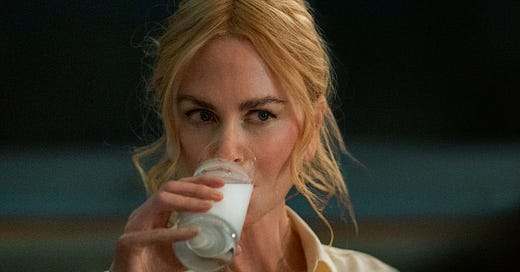


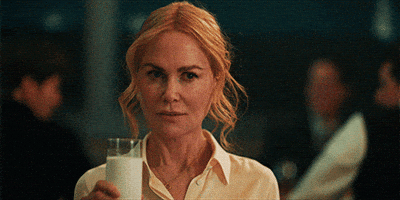
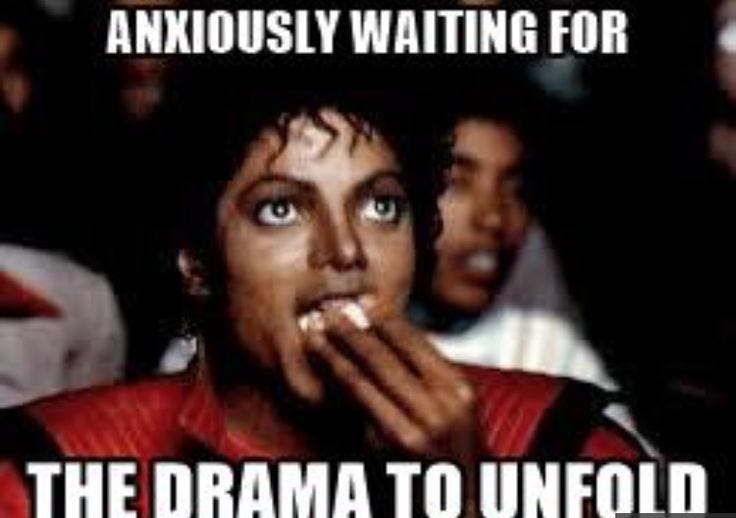
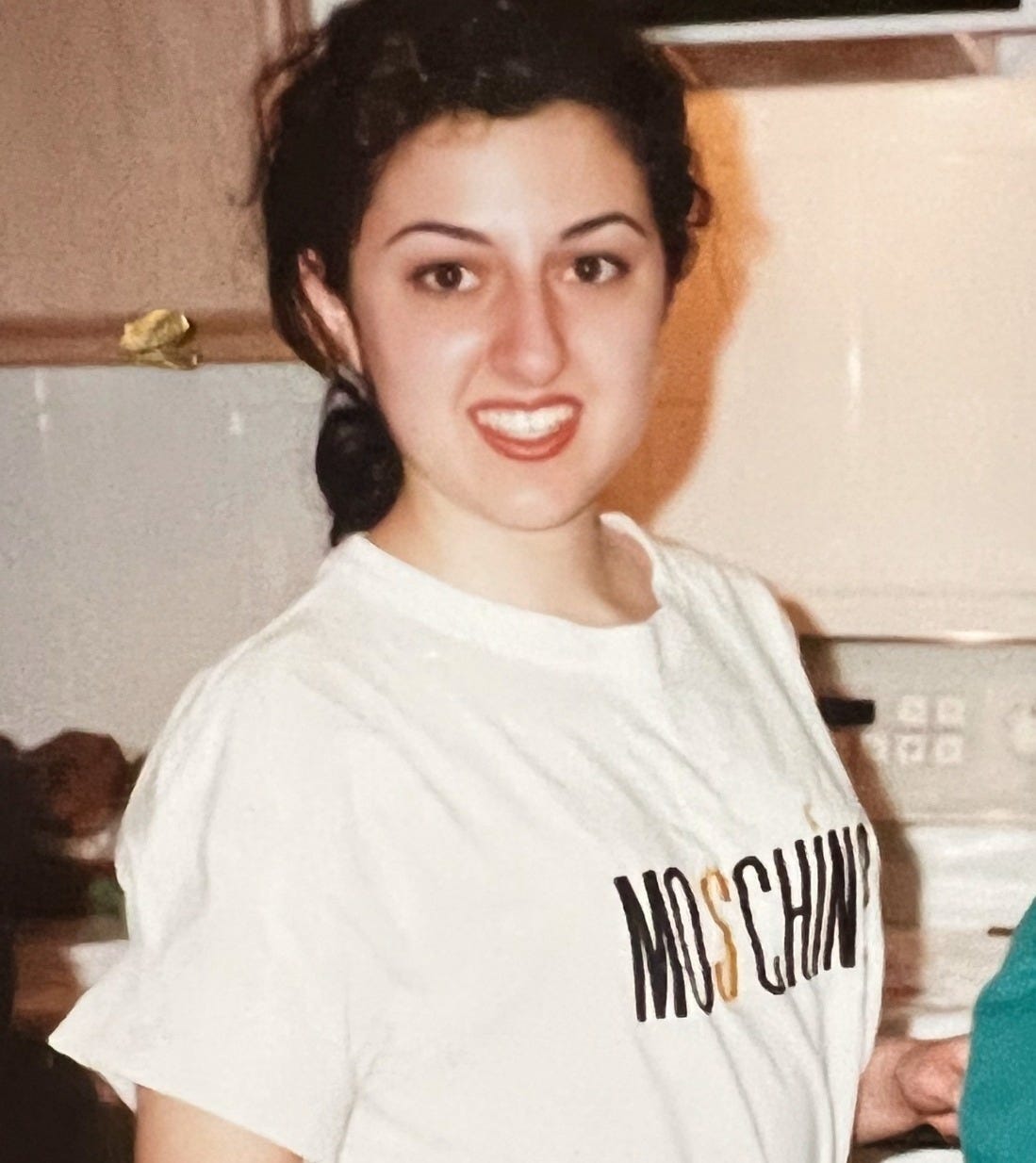
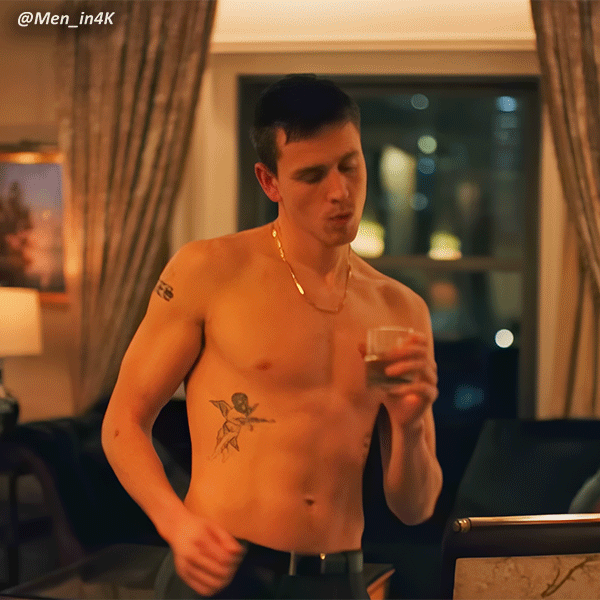
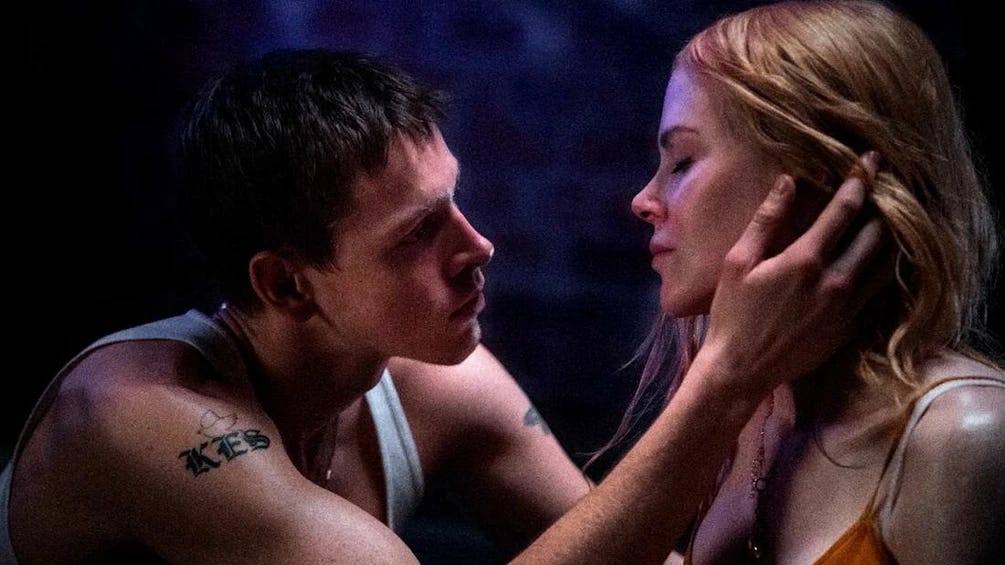

I started this process 7 years ago when I came out…it’s time to take it up a notch. Thanks for this Nadine!
THIS. Is Fabulous, Nadine---thank you xo